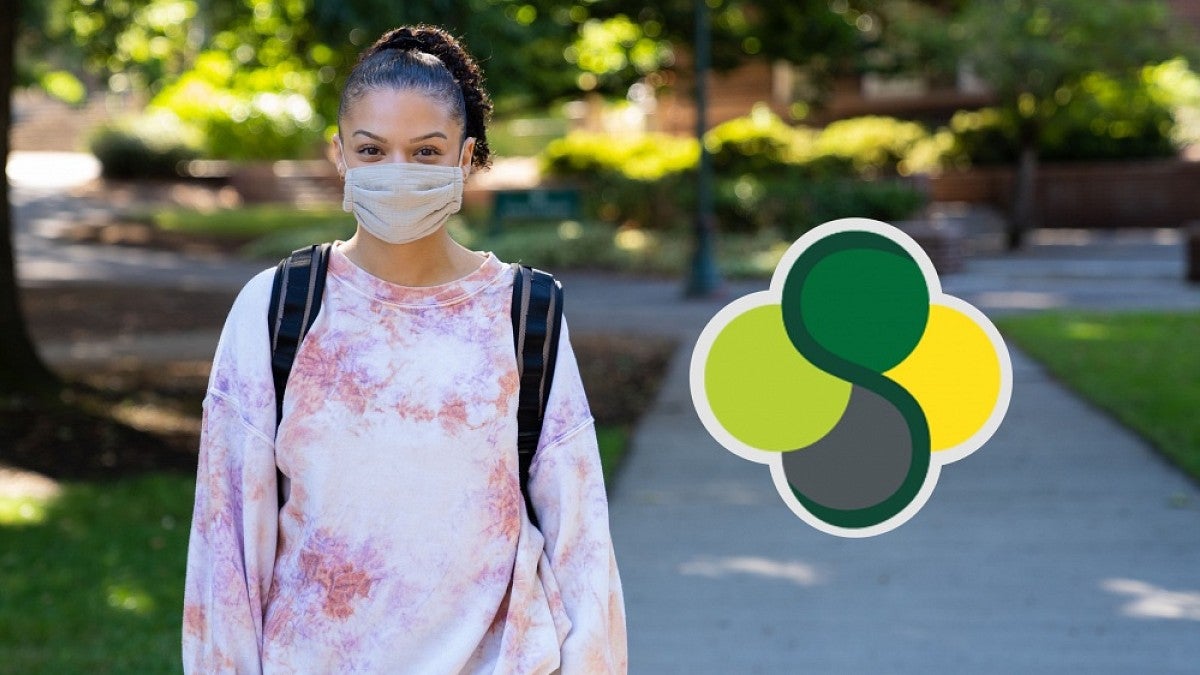The second biennial Student Success Summit will run virtually Feb. 1-5. Registration is free for the event, sponsored by the Division of Undergraduate Education and Student Success.
Throughout the weeklong summit, “Inspiration to Realization: Partnering for Every Student’s Success,” University of Oregon faculty members, staff and graduate employees will learn how to put students on a path to graduate from the UO having had a positive experience while being well-educated, socially responsible and career-ready. Attendees will have an opportunity to learn about innovative strategies and best practices in undergraduate education, including collaborative efforts across campus in the pandemic era.
“Student success is everyone’s everyday work,” said Doneka Scott, outgoing vice provost for student success and the creator of the summit.
The summit presentations feature exciting and innovative collaborations happening across the institution and a series of equity-focused sessions engaging participants in the topic, Scott said.
Due to the pandemic, the summit was postponed from spring 2020 and will be virtual.
“While unable to come together in person, we have created a space where participants can engage in meaningful learning and dialogue,” said Kimberly Johnson, incoming interim vice provost of undergraduate education and student success and the assistant vice provost for advising. “The remote setting now opens up the event for even more participation from staff and faculty.”
Scott will open the event, along with remarks from President Michael Schill and Provost Patrick Phillips. The opening keynote address will be given by Steven P. Dandaneau, executive director of the Reinvention Collaborative and associate provost at Colorado State University, who will discuss undergraduate eduation at research universities post-COVID-19.
The summit offers more than 40 presentations from nearly 100 presenters, with a few options for each session. The summit themes, which categorize each session, include well-educated, social responsibility, positive experience, career readiness, collaboration, COVID-19 and equity. Topics range from “The Mis-Replication of HBCU's: Black Cultural Centers at PWI ,” which discuss differences between historically Black colleges and universities and predominately white institutions, to “What Makes Us Electric: When Students do the Teaching,” which shares experiences with undergraduate teaching using a flipped classroom.
Summit leaders have invited the Complete College America, a leading national organization on student success, to share national practices and strategies and outlook in the post-COVID-19 era. Dhanfu Elston, chief of staff and senior vice president for strategy, will give a keynote speech, “The College Completion Movement: Pathways for Momentum in this Moment,” on Tuesday, Feb. 2 at 11 a.m.
Elston will discuss national student success trends and evidenced-based strategies to eliminate structural impediments, better support student success and increase graduation rates for all students, especially those least represented in higher education.
“While we have achieved our goal to increase our four-year graduation rates by 10 percentage points overall, when disaggregated by student demographics, our work is not complete.” Scott said.
She suggested that staff and faculty members “participate in sessions tagged with ‘equity’ and engage in learning and discussions to formulate future actions to make an impact on students’ experience and success.”
Programs throughout the event hew closely to the online learning UO students are doing. Success In Online Learning: A Student Resource Kit is a new program that focuses specifically on how students can succeed and thrive in the digital learning environment.
“2020 challenged us all in ways we never imagined. It highlighted the long-existing inequities in this country,” Johnson said. But even with the COVID-19 pandemic, “Our commitment to student success remains strong and partnerships across the institution are more important than ever. As the needs of our students evolve it is important for us to look ahead and reimagine how we can best educate and support our students in a post-COVID-19 environment.”
For more information, visit the Division of Undergraduate Education and Student Success page.
—By Alyson Johnston, University Communications


